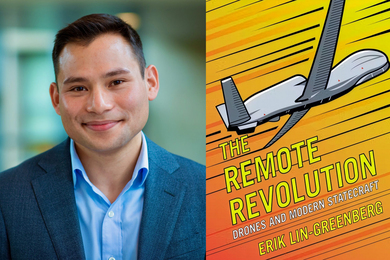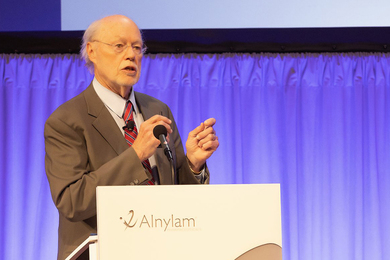Join Univerity of Arizona Professor William Yslas Vélez on Monday, April 5, at 4:30 p.m. in Room 4-370 for a discussion of "The Mathematical Enterprise: A Minority Perspective."
The role of mathematics in society has changed dramatically in the last 50 years. Mathematics has become an essential component in a large number of academic studies and technical careers. Moreover the associated analytical thinking of mathematical training is a valued commodity in the workforce. An undergraduate degree in mathematics, coupled with computer skills, is marketable, versatile and provides entrance into a variety of careers. Yet in spite of the increased demand for a mathematically trained workforce, this country has seen a decrease in the number of mathematics majors.
Whereas the minority populations are increasing in this country, this is not evidenced in the mathematical enterprise. Few doctorates in mathematics are awarded each year to minorities. This has produced a gross under-representation of minorities among the mathematics faculty at our universities. Given the changing demographics of the U.S. it is important for mathematics departments to entice more students into the study of mathematics.
A reception will preceed the lecture at 4 p.m. in 4-349. The event is free and open to the public. The event is sponsored by the Department of Mathematics and the Office of the Associate Provost for Faculty Equity.
For more information, visit http://www-math.mit.edu/news/specialevent.html.
The role of mathematics in society has changed dramatically in the last 50 years. Mathematics has become an essential component in a large number of academic studies and technical careers. Moreover the associated analytical thinking of mathematical training is a valued commodity in the workforce. An undergraduate degree in mathematics, coupled with computer skills, is marketable, versatile and provides entrance into a variety of careers. Yet in spite of the increased demand for a mathematically trained workforce, this country has seen a decrease in the number of mathematics majors.
Whereas the minority populations are increasing in this country, this is not evidenced in the mathematical enterprise. Few doctorates in mathematics are awarded each year to minorities. This has produced a gross under-representation of minorities among the mathematics faculty at our universities. Given the changing demographics of the U.S. it is important for mathematics departments to entice more students into the study of mathematics.
A reception will preceed the lecture at 4 p.m. in 4-349. The event is free and open to the public. The event is sponsored by the Department of Mathematics and the Office of the Associate Provost for Faculty Equity.
For more information, visit http://www-math.mit.edu/news/specialevent.html.





